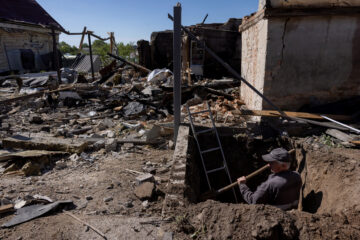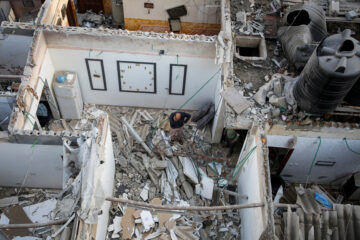Turkish army hits IS in Syria after soldier killed
The Turkish military Thursday pounded positions of Islamic State (IS) militants in Syria after a Turkish soldier was killed by cross-border fire from jihadists, in a drastic escalation of tensions between Ankara and the extremist group.
The deadly clash was the most serious yet between the Turkish army and IS since the Islamists began to take swathes of Iraq and Syria right up to the Turkish border from 2013.
The fighting erupted three days after the killing of 32 people in a suicide bombing in a Turkish town on the Syrian border, blamed on IS, sparked an upsurge in violence in Turkey\’s Kurdish-dominated southeast.
It also came as Turkey, after months of negotiations, finally gave the green light for the US to use a key air base in its south for air strikes against IS.
One soldier — a non-commissioned officer — was killed and two sergeants wounded by fire from five IS "terrorists" on the Syrian side of the border, the Turkish army said in an official statement.
The soldier was killed in the region of Kilis on the border. Four Turkish tanks from the fifth armoured brigade then responded by opening fire on IS targets in Syria.
"Three vehicles belonging to the IS terrorists were fired on and heavily damaged," the army said.
The army said that one IS militant had also been killed. His corpse, a rocket launcher and an AK-47 used by the militants had been seized, the army said, without specifying if troops had crossed into Syria to take them.
Thirty-two people — mainly young activists, one as young as 18, preparing for an aid mission to Syria — were killed on Monday in the devastating suicide bombing in the border town of Suruc.
That attack marked the first time the government had explicitly blamed IS for a strike in the country.
Turkish officials have confirmed a 20-year-old Turkish man linked to IS who had been missing for six months carried out the suicide bombing.
Turkey has been accused of colluding with IS extremists in the hope they might prove useful in its aim of knocking out Syrian President Bashar al-Assad. Ankara has always vehemently denied the claims.
NATO member Turkey has also fallen far short of playing a full role in the US-led coalition assisting Kurds fighting IS militants, much to the chagrin of its Western allies.
However Ankara has finally given the green light to US forces for use of its Incirlik base for air strikes against IS in Syria and Iraq, American officials said Thursday
The Hurriyet daily said that the accord was finalised in telephone talks Wednesday between President Recep Tayyip Erdogan and his US counterpart Barack Obama.
The New York Times said the agreement, which would allow manned and unmanned US warplanes to use Incirlik for raids against IS, was described by a senior administration official as a "game changer".
The Suruc bombing inflamed tensions with Turkey\’s Kurdish minority, which is unhappy over the lack of support provided by the government to Kurdish militias fighting the jihadists and accuses Ankara of backing IS.
A day after the fatal shooting of two police claimed by Kurdish militants as "revenge" for the Suruc suicide bombing, a policeman was killed in the majority Kurdish city of Diyarbakir.
The policeman was shot dead and another badly wounded by armed men during a routine traffic check in Diyarbakir, hospital sources said.
The military wing of the Kurdistan Workers\’ Party (PKK) had claimed Wednesday\’s killing of the two police, aged 24 and 25, in the border town of Ceylanpinar, accusing the two slain officers of collaborating with IS.
The state Anatolia news agency said the three suspects had been arrested in early morning raids and were being questioned, without giving further details.
Meanwhile the Patriotic Revolutionary Youth Movement (YDG-H), seen as a youth wing of the PKK, claimed it had shot dead an alleged former IS fighter in Istanbul late Tuesday.
The cabinet late Tuesday discussed a range of new physical measures to improve security on the 911-kilometre (566-mile) frontier with Syria.
Turkish media reported Wednesday that the measures were set to include sending zeppelins into the air several hundred metres high to monitor the border and building a concrete border wall.
Turkey also plans to put in place two fences separated by a military patrol road at the border, complete with observation towers at some locations, Hurriyet said. A moat will also be dug at some points.
SOURCE: AFP
[do_widget_area inner_adsbar]










